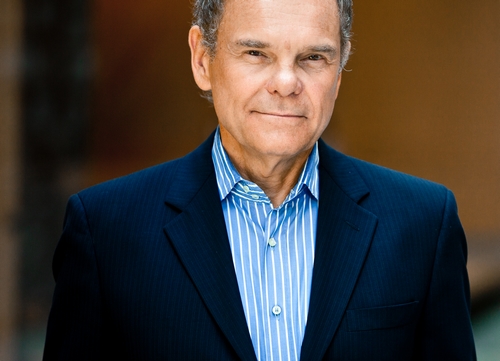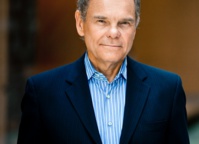What impact could the technology behind Bitcoin have? According to Tapscott Group CEO Don Tapscott, blockchains, the technology underpinning the cryptocurrency, could revolutionize the world economy. In this interview with McKinsey’s Rik Kirkland, Tapscott explains how blockchains—an open-source distributed database using state-of-the-art cryptography—may facilitate collaboration and tracking of all kinds of transactions and interactions. Tapscott, coauthor of the new book Blockchain Revolution: How the Technology Behind Bitcoin is Changing Money, Business, and the World, also believes the technology could offer genuine privacy protection and “a platform for truth and trust.” An edited and extended transcript of Tapscott’s comments follows.
Interview transcript
In the early 1990s, we said the old media is centralized. It’s one way, it’s one to many; it’s controlled by powerful forces, and everyone is a passive recipient. The new web, the new media, we said, is one to one, it’s many to many; it’s highly distributed, and it’s not centralized. Everyone’s a participant, not an inert recipient. This has an awesome neutrality. It will be what we want it to be, and we can craft a much more egalitarian, prosperous society where everyone gets to share in the wealth that they create. Lots of great things have happened, but overall the benefits of the digital age have been asymmetrical. For example, we have this great asset of data that’s been created by us, and yet we don’t get to keep it. It’s owned by a tiny handful of powerful companies or governments. They monetize that data or, in the case of governments, use it to spy on us, and our privacy is undermined.
What if there were a second generation of the Internet that enabled the true, peer-to-peer exchange of value? We don’t have that now. If I’m going to send some money to somebody else, I have to go through an intermediary—a powerful bank, a credit-card company—or I need a government to authenticate who I am and who you are. What if we could do that peer to peer? What if there was a protocol—call it the trust protocol—that enabled us to do transactions, to do commerce, to exchange money, without a powerful third party? This would be amazing.
Several years ago, an unknown person or persons named Satoshi Nakamoto came up with the Bitcoin protocol. Once again, the technology genie has been unleashed from its bottle. It gives us another kick at the can, another go, to try and rethink the economic power grid and the old order of things. That, to me, is how big this is. It feels like 1993.
How the blockchain works
The blockchain is basically a distributed database. Think of a giant, global spreadsheet that runs on millions and millions of computers. It’s distributed. It’s open source, so anyone can change the underlying code, and they can see what’s going on. It’s truly peer to peer; it doesn’t require powerful intermediaries to authenticate or to settle transactions.
It uses state-of-the-art cryptography, so if we have a global, distributed database that can record the fact that we’ve done this transaction, what else could it record? Well, it could record any structured information, not just who paid whom but also who married whom or who owns what land or what light bought power from what power source. In the case of the Internet of Things, we’re going to need a blockchain-settlement system underneath. Banks won’t be able to settle trillions of real-time transactions between things.
So this is an extraordinary thing. An immutable, unhackable distributed database of digital assets. This is a platform for truth and it’s a platform for trust. The implications are staggering, not just for the financial-services industry but also right across virtually every aspect of society.
Most blockchains—and Bitcoin is the biggest—are what you call permission-less systems. We can do transactions and satisfy each other’s economic needs without knowing who the other party is and independent from central authorities. These blockchains all have a digital currency of some kind associated with them, which is why everybody talks about Bitcoin in the same breath as the blockchain, because the Bitcoin blockchain is the biggest.
But to me, the blockchain, the underlying technology, is the biggest innovation in computer science—the idea of a distributed database where trust is established through mass collaboration and clever code rather than through a powerful institution that does the authentication and the settlement.
Video:
http://www.mckinsey.com/Industries/High-Tech/Our-Insights/How-blockchains-could-change-the-world
Interview transcript
In the early 1990s, we said the old media is centralized. It’s one way, it’s one to many; it’s controlled by powerful forces, and everyone is a passive recipient. The new web, the new media, we said, is one to one, it’s many to many; it’s highly distributed, and it’s not centralized. Everyone’s a participant, not an inert recipient. This has an awesome neutrality. It will be what we want it to be, and we can craft a much more egalitarian, prosperous society where everyone gets to share in the wealth that they create. Lots of great things have happened, but overall the benefits of the digital age have been asymmetrical. For example, we have this great asset of data that’s been created by us, and yet we don’t get to keep it. It’s owned by a tiny handful of powerful companies or governments. They monetize that data or, in the case of governments, use it to spy on us, and our privacy is undermined.
What if there were a second generation of the Internet that enabled the true, peer-to-peer exchange of value? We don’t have that now. If I’m going to send some money to somebody else, I have to go through an intermediary—a powerful bank, a credit-card company—or I need a government to authenticate who I am and who you are. What if we could do that peer to peer? What if there was a protocol—call it the trust protocol—that enabled us to do transactions, to do commerce, to exchange money, without a powerful third party? This would be amazing.
Several years ago, an unknown person or persons named Satoshi Nakamoto came up with the Bitcoin protocol. Once again, the technology genie has been unleashed from its bottle. It gives us another kick at the can, another go, to try and rethink the economic power grid and the old order of things. That, to me, is how big this is. It feels like 1993.
How the blockchain works
The blockchain is basically a distributed database. Think of a giant, global spreadsheet that runs on millions and millions of computers. It’s distributed. It’s open source, so anyone can change the underlying code, and they can see what’s going on. It’s truly peer to peer; it doesn’t require powerful intermediaries to authenticate or to settle transactions.
It uses state-of-the-art cryptography, so if we have a global, distributed database that can record the fact that we’ve done this transaction, what else could it record? Well, it could record any structured information, not just who paid whom but also who married whom or who owns what land or what light bought power from what power source. In the case of the Internet of Things, we’re going to need a blockchain-settlement system underneath. Banks won’t be able to settle trillions of real-time transactions between things.
So this is an extraordinary thing. An immutable, unhackable distributed database of digital assets. This is a platform for truth and it’s a platform for trust. The implications are staggering, not just for the financial-services industry but also right across virtually every aspect of society.
Most blockchains—and Bitcoin is the biggest—are what you call permission-less systems. We can do transactions and satisfy each other’s economic needs without knowing who the other party is and independent from central authorities. These blockchains all have a digital currency of some kind associated with them, which is why everybody talks about Bitcoin in the same breath as the blockchain, because the Bitcoin blockchain is the biggest.
But to me, the blockchain, the underlying technology, is the biggest innovation in computer science—the idea of a distributed database where trust is established through mass collaboration and clever code rather than through a powerful institution that does the authentication and the settlement.
Video:
http://www.mckinsey.com/Industries/High-Tech/Our-Insights/How-blockchains-could-change-the-world
Les médias du groupe Finyear
Lisez gratuitement :
Le quotidien Finyear :
- Finyear Quotidien
La newsletter quotidienne :
- Finyear Newsletter
Recevez chaque matin par mail la newsletter Finyear, une sélection quotidienne des meilleures infos et expertises de la finance d’entreprise et de la finance d'affaires.
Les 6 lettres mensuelles digitales :
- Le Directeur Financier
- Le Trésorier
- Le Credit Manager
- The FinTecher
- The Blockchainer
- Le Capital Investisseur
Le magazine trimestriel digital :
- Finyear Magazine
Un seul formulaire d'abonnement pour recevoir un avis de publication pour une ou plusieurs lettres
Lisez gratuitement :
Le quotidien Finyear :
- Finyear Quotidien
La newsletter quotidienne :
- Finyear Newsletter
Recevez chaque matin par mail la newsletter Finyear, une sélection quotidienne des meilleures infos et expertises de la finance d’entreprise et de la finance d'affaires.
Les 6 lettres mensuelles digitales :
- Le Directeur Financier
- Le Trésorier
- Le Credit Manager
- The FinTecher
- The Blockchainer
- Le Capital Investisseur
Le magazine trimestriel digital :
- Finyear Magazine
Un seul formulaire d'abonnement pour recevoir un avis de publication pour une ou plusieurs lettres
Autres articles
-
Coinbase et Visa, un partenariat pour des transferts en temps réel
-
Brilliantcrypto, la nouvelle aventure play-to-earn basée sur la blockchain Polygon, arrive sur Epic Game Store
-
Nomination | Truffle Capital promeut Alexis Le Portz en qualité de Partner
-
IPEM Paris 2024 : 5500 participants au Palais des congrès
-
Pomelo annonce une Série A à 35 millions de dollars menée par Vy Capital






